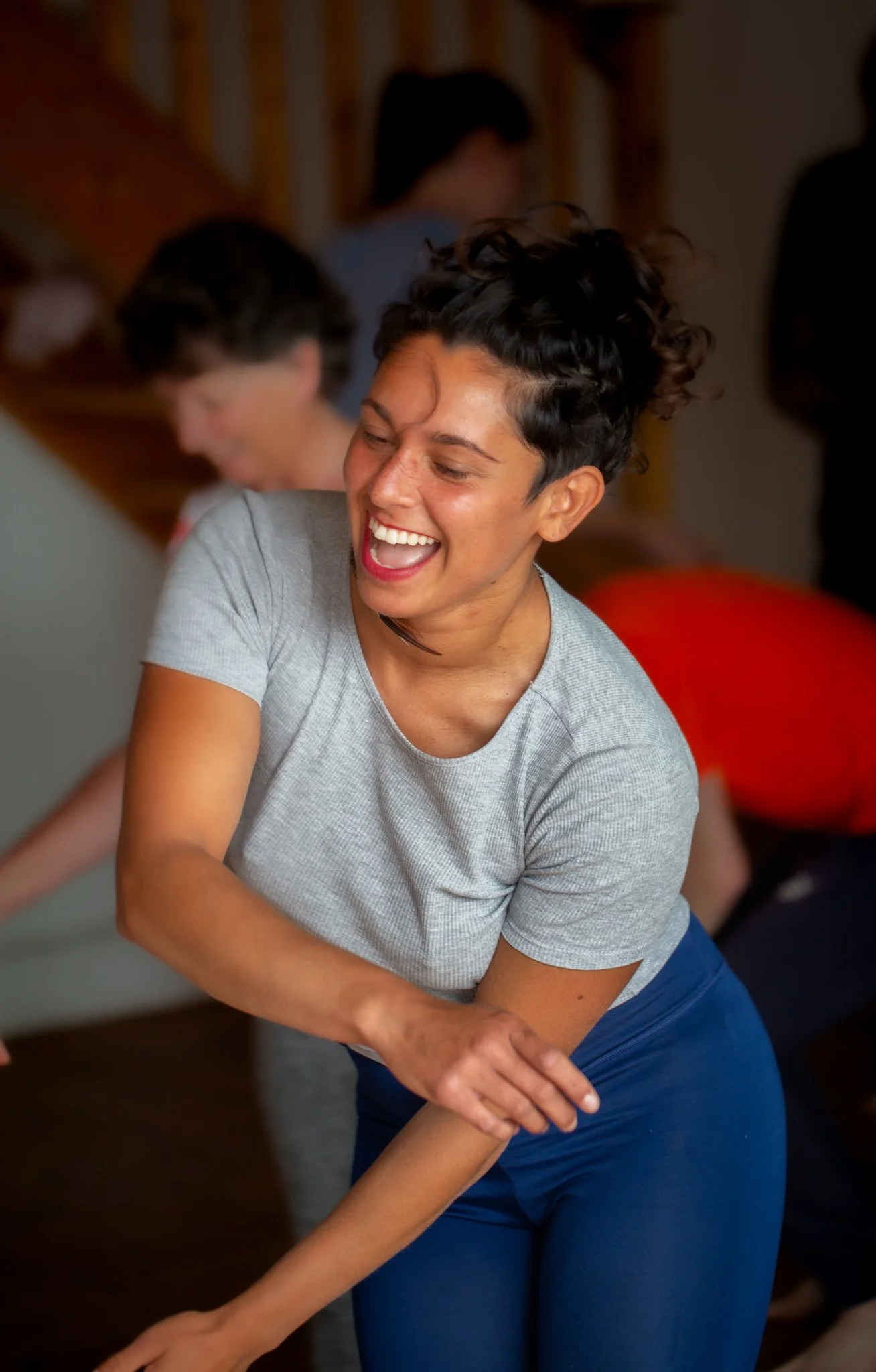
Stay Able To Play
Comprehensive Consulting for Recovery and Resilience
Consultation – The First Step Toward Lasting Change
Your body tells a story—one shaped by movement, tension, habits, and past experiences. Whether you’re navigating pain, seeking to move more efficiently, or looking to enhance performance, a consultation is the first step toward clarity and transformation.
This one-on-one session is more than just an appointment; it’s a deep dive into your physical needs, concerns, and aspirations. With 13 years of experience in strength, mobility, movement coaching, and manual therapy, I offer a multi-faceted approach tailored to your specific situation.
What a Consultation Can Offer You:
✔ Assessment & Clarity – Understand the root cause of discomfort, limitations, or inefficiencies in movement.
✔ Manual Therapy & Hands-On Intervention – Where needed, targeted techniques to release tension, restore function, and ease discomfort.
✔ Movement & Strength Coaching – Guidance on effective strategies to improve resilience, coordination, and overall body awareness.
✔ Injury Rehabilitation & Prevention – Learn how to recover fully and prevent future setbacks with intelligent, structured movement.
✔ Developing a Plan – Whether a single session resolves your concerns or it becomes the starting point of a 12-week Rescape Process, we’ll map out a clear next step for your journey.
What We Can Address Together
✔ Chronic Tension & Pain – Persistent discomfort in the back, neck, or joints due to movement habits, stress, or past injuries.
✔ Posture & Movement Imbalances – Helping you move with more ease, efficiency, and confidence.
✔ Injury Recovery & Resilience – Supporting recovery from acute or repetitive stress injuries while building long-term strength.
✔ Restricted Mobility & Stiffness – Addressing flexibility, coordination, and overall fluidity of movement.
✔ Nerve & Referral Pain – Easing impingements and restoring balanced movement patterns.
✔ Stress & Nervous System Regulation – Using movement, stillness, and self-awareness to find clarity and ease in your body.
Who Is This For?
Individuals recovering from injury or chronic tension.
Those looking to enhance strength, mobility, and movement efficiency.
Anyone feeling stuck in pain cycles and needing a practical, effective way forward.
Athletes, artists, musicians, desk workers, and movers of all levels who want to move and feel better in their body.
A consultation is a powerful standalone service—but for lasting change, a process often yields the best results. If you’re ready to commit to a deeper transformation, this session could be the first step in your Rescape journey.

Book Your Consultation
Take the first step toward a stronger, more adaptable body.
Book your consultation today and start your journey with confidence.
FAQs
-
Each session is tailored to your specific needs. We’ll start with a conversation about your concerns, goals, and movement history. Depending on what’s most beneficial, the session may include hands-on manual therapy, movement coaching, or a mix of both. You’ll leave with a clearer understanding of your body and practical next steps.
-
Not at all. While I help with injury recovery and chronic pain, I also work with people who want to move better, build strength, or prevent future issues. Whether you’re an athlete, desk worker, or someone looking to improve mobility, a consultation can be valuable.
-
You don’t need to decide in advance—I’ll assess your situation and guide you toward the best approach. Often, a combination of both works best for long-term results.
-
Comfortable clothing that allows for movement—something you might wear to exercise or stretch in.
-
Some people find significant relief in a single session, while others benefit from a longer process. If deeper change is needed, we can discuss ongoing support or the 12-week Rescape Process as a structured pathway forward.
-
In-person consultations are held at Life Fit Studio, Ballygarvan, Co.Cork. If you’re considering online support, we can discuss how that might work for you.
-
You can book directly through the ‘book in’ buttons, or if you have further questions, feel free to reach out.
-
Physiotherapists and neuromuscular therapists/sports massage therapists both work with clients to address physical injuries and conditions, but they have different approaches and training.
Physiotherapists are healthcare professionals who are trained to diagnose and treat a wide range of physical conditions and injuries. They use a variety of techniques and treatments, including exercise therapy, manual therapy, and modalities such as ultrasound or electrical stimulation. Physiotherapists often work in clinical or hospital settings and may collaborate with other healthcare professionals to provide comprehensive care.
Neuromuscular therapists and sports massage therapists are typically focused on using manual therapy techniques to address soft tissue issues and relieve pain or tension. They may work in a variety of settings, including clinics, gyms, or sports teams, and often work directly with athletes or people engaged in physical activity. Neuromuscular therapists may use techniques such as trigger point therapy or myofascial release to address specific areas of pain or tension, while sports massage therapists may use a range of massage techniques to promote healing and prevent injury.
In general, physiotherapists have a broader scope of practice and are trained to address a wider range of conditions and injuries, while neuromuscular therapists and sports massage therapists have a more specialized focus on manual therapy techniques for soft tissue issues. Both can be valuable resources for addressing physical issues and improving overall health and well-being, and the choice between them may depend on the specific needs and goals of the individual.
-
Neuromuscular therapy can involve applying targeted pressure to specific points in the muscles to alleviate pain and tension. The level of discomfort experienced during neuromuscular therapy can vary depending on several factors:
Sensitivity: Different individuals have varying pain thresholds and levels of sensitivity. What might be uncomfortable for one person could be more tolerable for another.
Tension and Dysfunction: The severity of muscle tension, knots, or trigger points can affect the level of discomfort during therapy. In some cases, the therapist may need to apply more pressure to effectively release the tension, which can cause temporary discomfort.
Communication with Therapist: It's crucial to communicate openly with your therapist during the session. If you feel the pressure is too intense or causes excessive pain, inform the therapist immediately so they can adjust their techniques accordingly.
After Effects: It's not uncommon to experience some soreness or tenderness after neuromuscular therapy. This can be similar to the feeling after a rigorous workout. The discomfort usually subsides within a day or two.
Overall, while neuromuscular therapy may involve some discomfort during the treatment, it is typically not described as painful. The primary goal is to alleviate pain and improve muscle function in the long run. If you have concerns about the level of discomfort, it's best to discuss them with a qualified therapist before the session.
-
The number of sessions required to experience relief and improvement through neuromuscular therapy can vary depending on several factors, including the specific condition or issue being addressed, the severity of the problem, and individual factors such as your overall health and responsiveness to treatment.
In some cases, individuals may experience significant improvement after just one or a few sessions, particularly for minor muscle tension or discomfort. However, for more chronic or complex issues, it may take several sessions over a period of time to achieve noticeable and lasting results.
It's important to understand that neuromuscular therapy is often part of a comprehensive treatment plan that may include other modalities such as stretching, exercise, and lifestyle modifications. Your therapist will evaluate your condition and develop a personalized treatment plan that takes into account your specific needs and goals.
During your initial consultation, the therapist will assess your condition and discuss the treatment plan with you. They may provide an estimate of the number of sessions you may need based on their professional judgment and experience. However, it's important to remember that everyone responds differently to treatment, and the number of sessions required can vary from person to person.
Consistency and adherence to the recommended treatment plan, along with open communication with your therapist regarding your progress, will help determine the optimal number of sessions needed for you to feel better.
-
When considering whether neuromuscular therapy is suitable for your specific condition or injury, it's important to consult with a qualified healthcare professional, such as myself. I can assess your condition and provide personalized guidance.
Neuromuscular therapy can be effective for addressing various musculoskeletal conditions, including muscle tension, trigger points, postural imbalances, and certain types of injuries. However, its suitability depends on factors such as the nature and severity of your condition, any underlying health conditions, and individual considerations.
As a licensed healthcare professional experienced in neuromuscular therapy, I can evaluate your specific case, taking into account your medical history and any contraindications, to determine whether neuromuscular therapy is an appropriate treatment option for you. I can also create a tailored treatment plan that may include other modalities to optimize your recovery.
Remember, seeking professional medical advice is crucial for accurate diagnosis and treatment recommendations. I can provide the expertise and personalized guidance you need based on your individual needs. Please feel free to contact me to schedule a consultation and determine the best course of action for your condition.
-
Neuromuscular therapy is generally considered safe, and most people do not experience significant side effects. However, it's important to note that individual reactions can vary. While side effects are generally mild and temporary, a few potential considerations include:
Soreness or Tenderness: After a neuromuscular therapy session, it is not uncommon to experience some post-treatment soreness or tenderness in the treated areas. This can be similar to the feeling after a vigorous workout. However, the discomfort typically subsides within a day or two.
Fatigue: Some individuals may feel temporarily fatigued or relaxed after a session. It is advisable to rest and allow your body to recover if you experience this sensation.
Emotional Release: Neuromuscular therapy can sometimes evoke emotional responses. You might experience feelings of relaxation, relief, or even emotional release during or after the session. This is a normal reaction and part of the body's healing process.
Temporary Discomfort: During the therapy session itself, you may experience temporary discomfort or sensitivity as the therapist works on trigger points or areas of tension. However, it should not be excessively painful. It's crucial to communicate with your therapist about your comfort level during the session.
Rare Side Effects: While uncommon, rare side effects such as bruising, light-headedness, or temporary muscle soreness in adjacent areas may occur. If you have any concerns or experience unusual symptoms, it's important to inform your therapist immediately.
It's important to remember that these side effects are typically mild and transient. Most individuals find neuromuscular therapy to be beneficial and experience relief from their symptoms. If you have specific health concerns or medical conditions, it's recommended to consult with a qualified healthcare professional or your therapist to ensure the safety and appropriateness of the therapy for your situation.
-
Yes, clients of LAYA healthcare can make reimbursement claims for their neuromuscular therapy and sports massage appointments.
Appointments are paid in full when booking with promotional codes available for affiliated associations.
-
Appointments can be rescheduled by the client up to 24 hours before attendance at no additional fee. Cancellations within the 24 hour window or no-shows are charged the value of the session.
What our customers say













